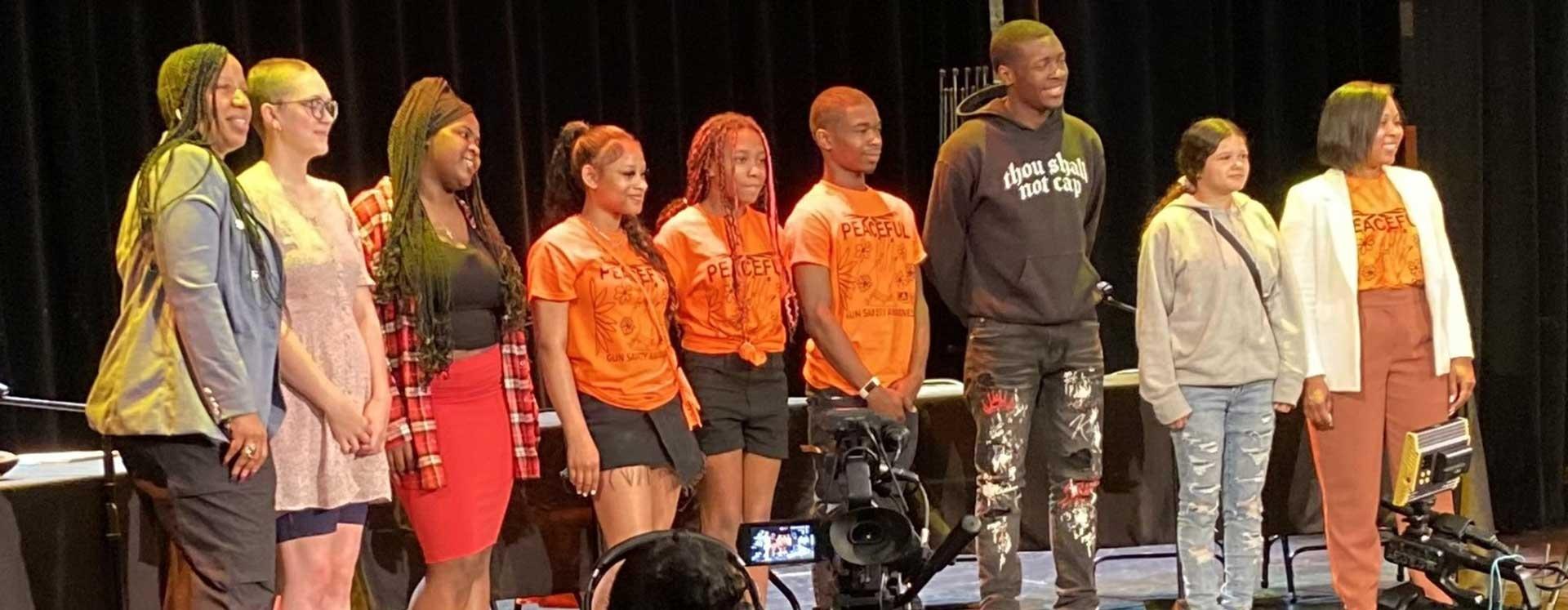St. Louis is all too familiar with the issues around violent crime in our city, particularly those involving firearms. Recently, two separate events gathered community members who have been either affected by or are working toward solutions to combat this persistent public safety issue in our region.
An unfortunate reality is the high number of children in the city affected by gun violence. At a student-led discussion organized by Educators for Gun Safety, only 1 out of 7 panelists said they have had conversations about these issues with their families. They claimed the lack of conversations is mainly because of the uncomfortable subject matter, but also because violent crime has become so normalized in the city.
“I feel like deaths within a school, when it comes to gun violence, is something that should be addressed. I know a number of people that have died from this school and their death wasn’t even addressed,” said Linda Francis, student panelist from Roosevelt High School.
The panel wants gun laws to change to make it harder for weapons to be obtained.
They also felt that during the school year, districts and their communities should try their best to keep kids in school. If they are skipping class or being expelled, it gives them more free time to do things that might be unproductive. Regarding after-school hours and summer break, panelists listed activities, social groups, career-building resources, and opportunities that need to be available and made known to all students.
At another recent event called “The State of Public Safety in St. Louis: Changing the Conversation on Crime, Safety, and Growing Violence,” Dr. Christi Griffin of The Ethics Project passionately stated, “The teachers are traumatized because the children are traumatized.” Later in the event, Dr. Marty K. Casey, Founder of the UnGun Institute, shared that “trauma is transferable, and so is healing.”
The panelists included education, law, and mental health professionals. The consensus was that addressing mental health is essential in approaching the state of public safety. “We cannot incarcerate ourselves out of mental health issues, substance abuse issues, and trauma. We have to address the root causes of crime in order to talk about prevention,” said Dr. Nicole Barton, executive director of the Criminal Coordinating Council.
The panel addressed how crime and substance abuse are handled much differently in white communities compared to Black communities and how incarceration rather than treatment is the prevailing response in underrepresented communities. “We need to change the narrative from punishment to treatment,” said Clinical Psychologist Dr. Marva Robinson. St. Louis County Prosecuting Attorney Wesley Bell spoke about the concerns of formerly incarcerated people. “We have a 90 percent success rate in treatment and reentry programs.” Missouri Senator Brian Williams shared upcoming changes coming to the St. Louis region, including funding to build a $23 million public safety training facility.
At both events, panelists and attending community members expressed interest in continuing conversations about solutions to make St. Louis a safer community.
-Contributed by Leah Gullet, Community Content Creator, Nine PBS



